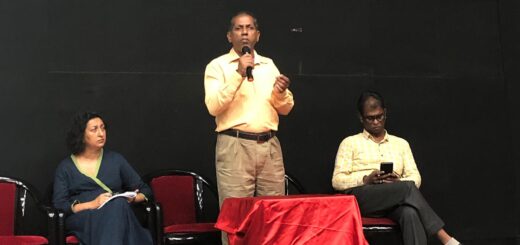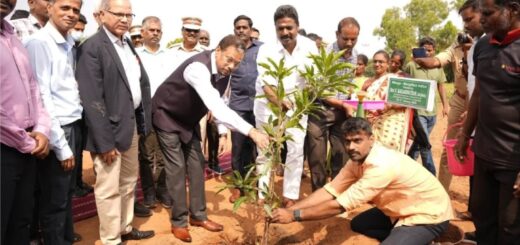International Conference on India- European Union Free Trade Agreement: Implications for Indian Policy, Society Economy
A three-day International Conference on India- European Union Free Trade Agreement: Implications for Indian Policy, Society Economy was organized by Centre for European Studies, Pondicherry University in association with Madhyam, New Delhi, Indian Council for Social Science Research, New Delhi and University of Paris 13, France wend headway on 3 March, 2014 at the Cultural-cum-Convention Centre, Pondicherry University.
The inaugural function had eminent personalities like of M. Philippe Janvier-Kamiyama, Consul-General of France in Pondicherry, Professor. K P Prabhakaran Nair, Agro Scientist from Calicut; Kavaljit Singh Director, Madhyam from New Delhi who delivered the Special Address, Keynote Address and Inaugural Address respectively.
Vice-Chancellor, Pondicherry University Professor. Chandra Krishnamurthy delivered the Presidential Address while the Felicitation Address was delivered by Professor. N K Jha. The Welcome Address and the Vote of Thanks were delivered by Professor. B Krishnamurthy, Head of the Centre for European Studies, PU and Professor P Moorthy, Head, Deptartment of Politics and International Studies respectively.
Kavaljit Singh, in his speech gave a brief description of the Free Trade Agreement (FTA) between EU and India. In his speech, he further highlighted the negotiating agenda of both EU and India for the FTA and the resultant deadlock because of the non-compromising sides. Some of the main deadlocks responsible for the delay in the completion of negotiations that he cited were, India’s reluctance to open its markets for foreign products with 0% Tariff Walls in certain sectors as well as EU’s reluctance in granting India a Data Secure Nation. Further, in discussing the challenges to the negotiations being fruitful, he highlighted that an FTA with 0% tariff walls would result in about Rs. 15000 crore in tax revenue losses for India which is not feasible and hence the unwillingness. He emphasized on the need to ask right questions even if there were no answers to those questions.
Speaking on similar lines, K P Prabhakaran Nair declared his concern for the present Agricultural scenario in India. He emphasized that the FTA will be a complete no-win situation for India because of the intention of the EU to capture the untapped potential of the Indian Domestic market. The fact that India is bonded by the WTO Agreement, due to the balance of payment crisis of the 1990s which led to the economic liberalization of 1991 and the neo liberal reforms, prevents India from subsidizing for more than 10% of the production cost (i.e. the de minimis level). This results in the capture of markets by foreign products that are highly subsidized. There is basically a conflict of interests scenario.
The Consul General of France in Pondicherry M. Philippe Janvier-Kamiyama, in his special address highlighted the importance of a trade pact between the EU and India citing the common strings of attachment that they share, democracy and diversity being some of the features.
Professor. N K Jha, in his Felicitation Address, then summarized the arguments stating that Globalization is an inevitable reality and the key to prosperity lies in balance, the balance between free trade and protection of Indian interests. The Presidential Address of the Vice-Chancellor were also on similar lines who later in her speech urged the student community to suggest courses that the students would want to study while also declaring new PG courses to be started in the School of Law.
Last but not the least, the Vote of Thanks was delivered by Professor. P Moorthy. The post lunch sessions included the academic sessions with a number of paper presenters from both India and Europe. The Conference will continue through 4 and 5 March, 2014 at the Convention cum Culture Centre, Pondicherry University.
Subhajit Paul
1st M.A. Mass Communication




